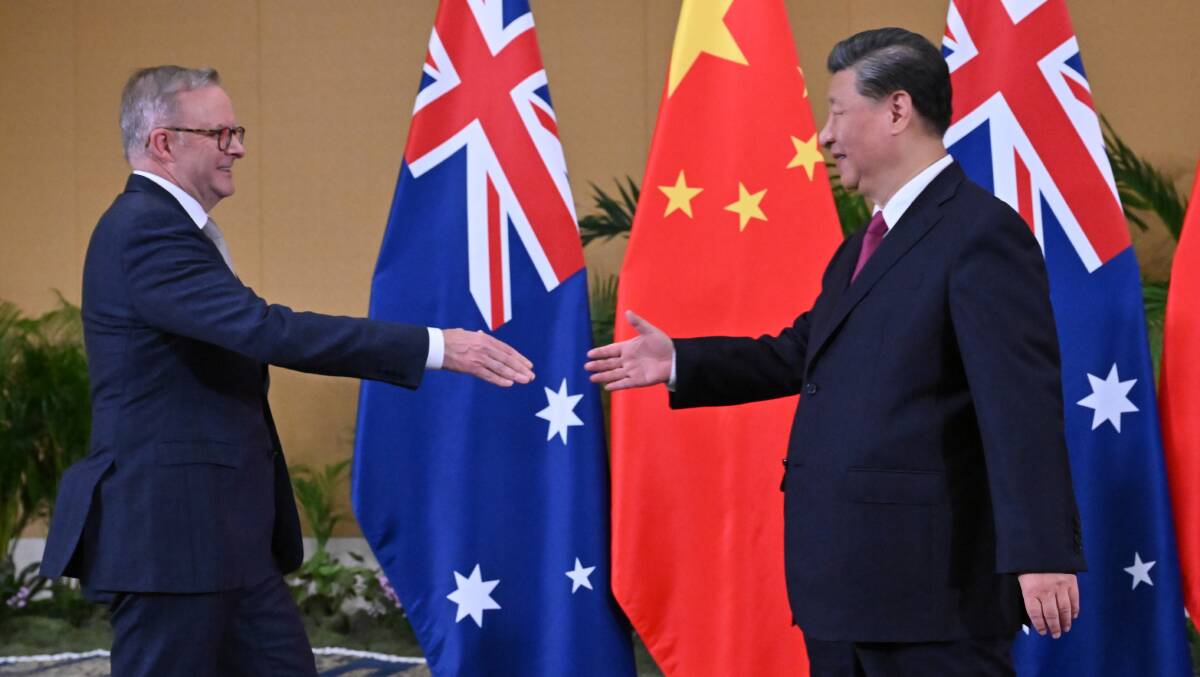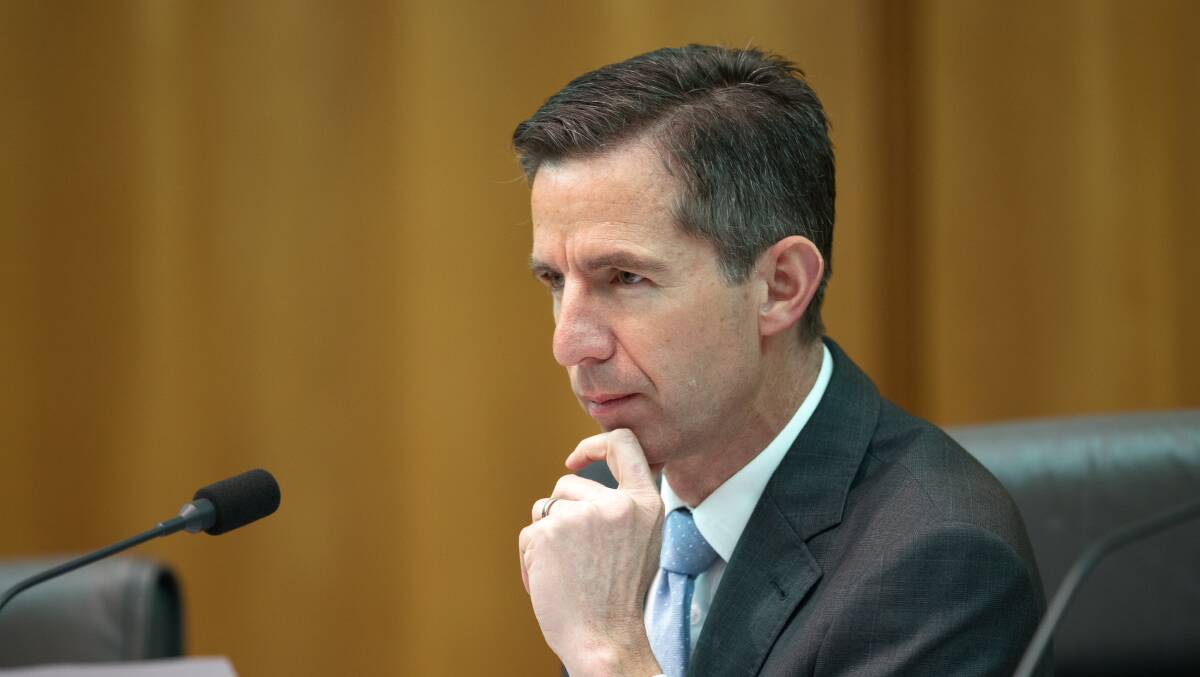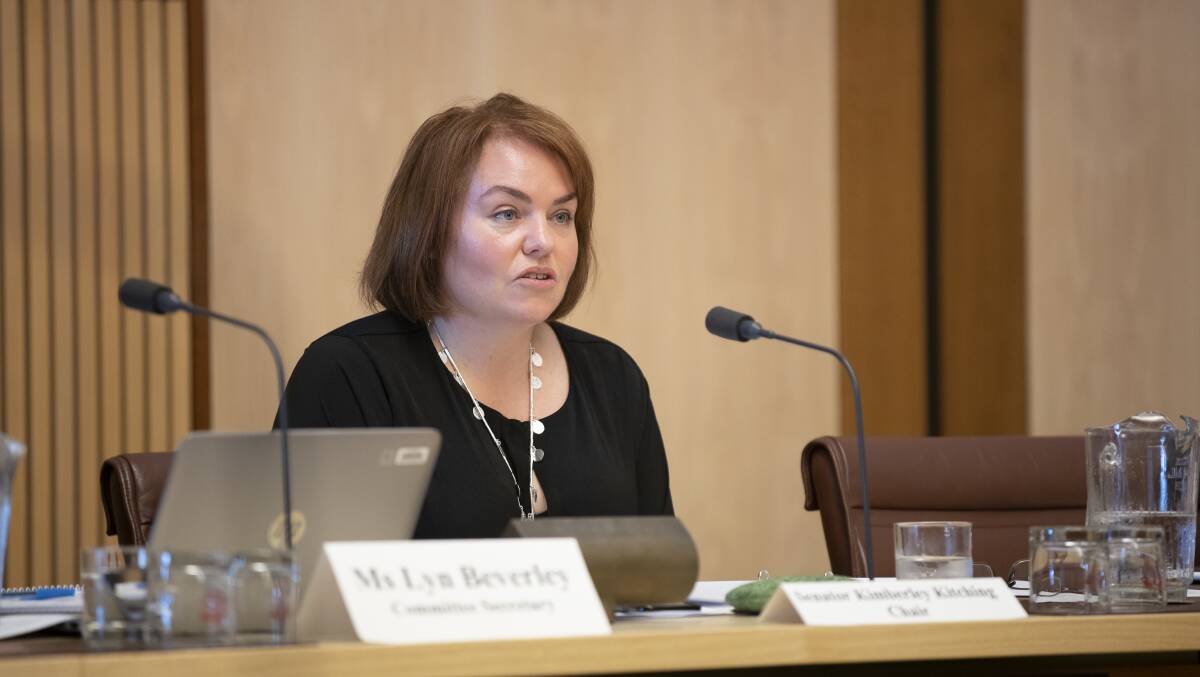Australia should use new powers to sanction individual Chinese officials over human rights abuses, the opposition says, despite a landmark meeting between the countries' leaders.
Subscribe now for unlimited access.
$0/
(min cost $0)
or signup to continue reading
Anthony Albanese last week became the first Australian prime minister to formally meet Chinese President Xi Jinping in half a decade, when the pair sat down on the sides of the G20 Leaders Summit.
The meeting sparked talk of a thawing in relations, after three years dominated by Chinese trade sanctions and Beijing cutting off diplomatic engagement.
Mr Albanese on Sunday described the meeting as a "step forward", but stopped short of guaranteeing a tangible outcome.

"This [trade war] has been counterproductive. It clearly hasn't been in Australia's interest, nor has it been in China's interest," he told Sunrise.
"I put that forward respectfully to President Xi, and we'll work towards working those issues through."
But Coalition foreign affairs spokesman Simon Birmingham urged Labor to take stronger action on human rights abuses in China, as well as Myanmar and Iran.

Senator Birmingham said he had written to Foreign Minister Penny Wong after a UN report detailing the abuse of Uyghurs in Xinjiang, to tout the prospect of Magnitsky-style sanctions on Chinese officials.
"[Labor] joined in the condemnation with other nations, but haven't joined in action like other nations, in terms of the use of Magnitsky-style sanctions," he told the ABC's Insiders.
"As a coalition, we would offer bipartisan support for them to do."
Australia passed Magnitsky laws, driven by the late Labor senator Kimberley Kitching, in 2021, which were first used in March by the Coalition to sanction Russian individuals.
The laws, which have equivalents in a host of countries, enable economic sanctions to be imposed on individuals involved in serious human rights atrocities.
Senator Birmingham also floated the prospect their use in Myanmar, despite the release of Australian academic Sean Turnell after more than 18 months in detention.
Senator Wong directly engaged with Myanmar's dictatorship before his release, a step not taken by her predecessor Marise Payne, before Mr Turnell's release.

But Senator Birmingham insisted engagement must not come at the cost of pressuring Myanmar over its human rights record, saying the Magnitsky laws gave Labor "further options" to punish the regime.
"We cannot turn a blind eye to the thousands of other individuals who are detained in Myanmar, to the abuses occurring across the country to the oppression of minorities," he said.
"International acceptance should not occur off the back of a sham election, [it] should not occur when we see such extensive human rights abuses occurring."
And as the Iranian regime attempts to crush the biggest demonstrations in the country since 2009, Senator Birmingham warned Australia was a "long way behind" the international community in its response.
READ MORE:
"There is a sense that this could be a moment of time in relation to Iran. We won't know that for sure until things unfold," he said.
"But Australia should be leaning in to support those brave souls in Iran, and stand consistent with other nations."
But with Iran one of Australia's key wheat export markets, he stopped short of calling for sweeping sanctions.
"Many of the Iranian-Australians that I've engaged with have ... expressly said they don't want sanctions that could hurt the Iranian people," he said,
"But they do believe that there are many cases for targeted individual sanctions to be applied."


